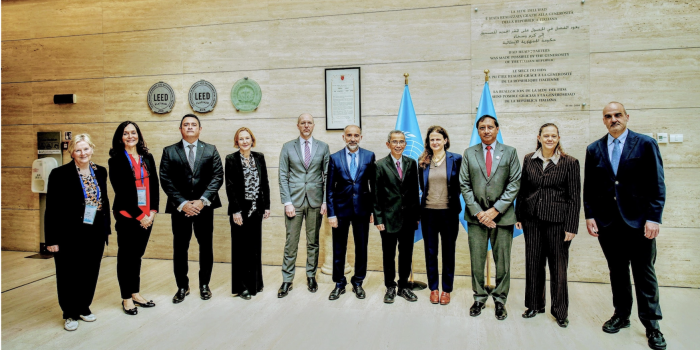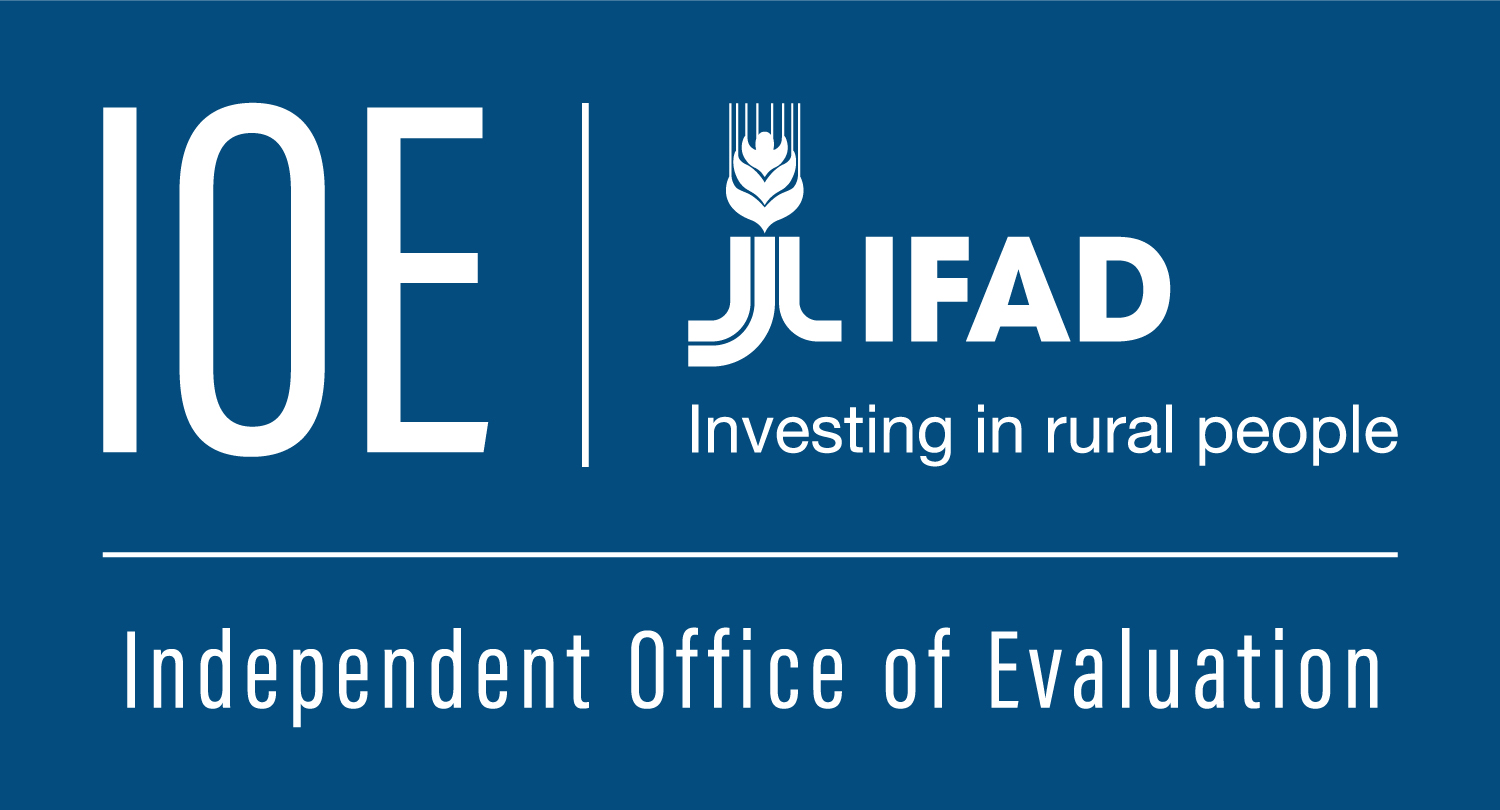

ECG Spring 2025 Meeting hosted by the IFAD Independent Office of Evaluation
The ECG 2025 Spring meeting brought together the heads of the evaluation offices of all the major MDBs. The Chair of the event, Dr Indran A. Naidoo, IOE Director, was joined by Dr Véronique Salze-Lozac’h, Chief Evaluator, EBRD; Dr Sabine Bernabè, Vice President and Director General of Evaluation, IEG-World Bank; Monique Koning, Inspector General, European Investment Bank (EIB); Emmanuel Pondard, Head of Evaluation, EIB; Pablo Moreno, Director, Independent Evaluation Office (IEO), International Monitory Fund (IMF); Dr José Efraín Deras, Head of the Independent Evaluation Office, CABEI; Karen Rot-Münstermann, Evaluator General, African Development Bank (AfDB); Todor Dimitrov, Director, Independent Evaluation, Black Sea Trade & Development Bank (BSTDB); Marialisa Motta, Director, Office of Evaluation and Oversight (OVE), Inter-American Development Bank; and Dr Emmanuel Jimenez, Director General, Asian Development Bank (AsDB).
In his opening remarks, Dr Naidoo put the spotlight on IOE’s strategic priorities going forward. These include a heightened country focus, which will result in a 100% increase in the geographic coverage of the Office’s evaluations. IOE will also make growing use of artificial intelligence (AI) and continue its work on mainstreaming a neuroscience-based approach to evaluation communication. In recent years, this approach has contributed to strengthening a solid working relationship with IFAD Management through a process of principled engagement.
Following a round of institution-specific updates, the Spring meeting began by welcoming the application of the New Development Bank’s IEO to join the ECG, by granting it temporary observer status. Thereafter, seven thematic discussions unfolded over the course of the three days. IOE’s substantive contributions featured prominently during these sessions.
Dr Naidoo co-chaired the first thematic session, on AI, alongside, Dr Bernabè. The session included a joint presentation by Steven Jonckheere, IOE Senior Evaluation Officer, and Hannah den Boer, IOE Associate Evaluation Officer. Contributions to the session included presentations by EIB, IEG-WB and AsDB. The IOE Director also co-chaired the second thematic session, on the private sector, alongside Dr Efraín Deras. The session included a presentation by Dr Kouessi Maximin Kodjo, IOE Lead Evaluation Officer. Contributions to the session included presentations by CABEI and AsDB. On the second day of the meeting, Dr Naidoo co-chaired the fifth thematic session, on knowledge management (KM) and communication, alongside Ms Rot-Munstermann. Dr Alexander Voccia, IOE Senior Evaluation Communication and KM specialist, delivered the opening presentation. Contributions to the session included presentations by IEG-WB, AfDB and AfDB.
Vibrant discussions also unfolded over the course of the other thematic sessions. These included the sessions on climate change, co-chaired by Mr Moreno and Dr Salze-Lozach, with presentations by IMF, EIB, AsDB and EBRD; on good practice standards and methodologies, co-chaired by Ms Motta and Dr Bernabè, with presentations by IDB and BSTDB; on additionality, chaired by Mr Pondard, with presentations by IEG-WB and EIB; and on institutional change, co-chaired by Dr Bernabè and Mr Dimitrov, with presentations by IMF, EBRD, EIB and IEG-WB. The meeting also included a side event on KM and communication, during which Dr Voccia delved into the details of how IOE has been leveraging neuroscience-based principles in its evaluation communication undertakings.
